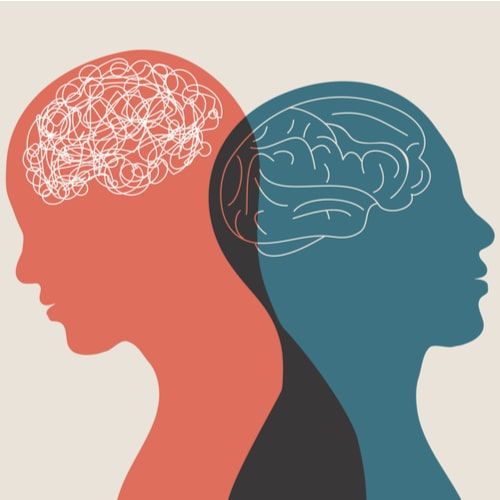Living with a mood disorder can be exceptionally challenging, and even more so if you don’t have a supportive community to help you face it. Mood disorders, also known as emotional disorders, are largely invisible to those around us, and sharing it can result in disapproval, misunderstandings, and platitudes that aren’t helpful to those fighting them. With proper help and management, those suffering from emotional disorders can lead happy, productive lives.
Did you know?
Mood disorders and anxiety commonly coexist and can exacerbate each other when they occur together. Those who are struggling with these disorders tend to have difficulty recovering from circumstances that damage their morale and faith in themselves. Anxiety creates a deep need for protection or reassurance in those who suffer from it, and when those needs go unmet, it is easier for them to spiral into a deep depression that becomes self-feeding. 350 million people all over the world suffer from anxiety and depression.
Frequently Asked Questions
Can mood disorders be cured?
There is a no magic bullet cure for mood disorders, but they can often be managed with a combination of psychiatric approaches, and psychotherapy. Also changes in lifestyle possibly combined with family therapy can go along way to helping patients manage these conditions.
What causes mood disorders?
There are many theories on the underlying causes of mood disorders, but one thing that is certain is that every instance of a mood disorder has its unique underlying causes. Certain commonalities exist that can include chemical imbalances and stress, but in many cases, mood disorders are the result of experiences we’ve had in our lives that have had a lasting impact. Both of these can be true, with a medical cause being exacerbated by an experiential one, working with your psychiatrist will help determine the origin of your case and the proper course of treatment for it.
What are the common types of mood disorders?
The term “mood disorder” or “emotional disorder” actually covers a range of conditions that include the well-known bipolar disorder and postpartum depression, as well as the prevalent “major depression.” There are milder cases of mood disorders as well, including one known as dysthymia, which describes a mild form of depression that doesn’t have a direct impact on an individual’s daily life.
What can symptoms identify a mood disorder?
Many of the most recognizable symptoms are emotional in origin and include suicidal thoughts and a general sense of apathy towards activities that used to inspire you. In some cases, sufferers will experience a lingering sense of emptiness, anxiety, or general sorrow, as well as having a pervasive sense of pessimism. For those who suffer from bipolar disorder, they may also experience moments of restlessness, grandiosity, and impulsively hedonistic behavior. Physical symptoms can include excesses of exhaustion or energy, a lack of interest in food or periods of hypersexuality.


